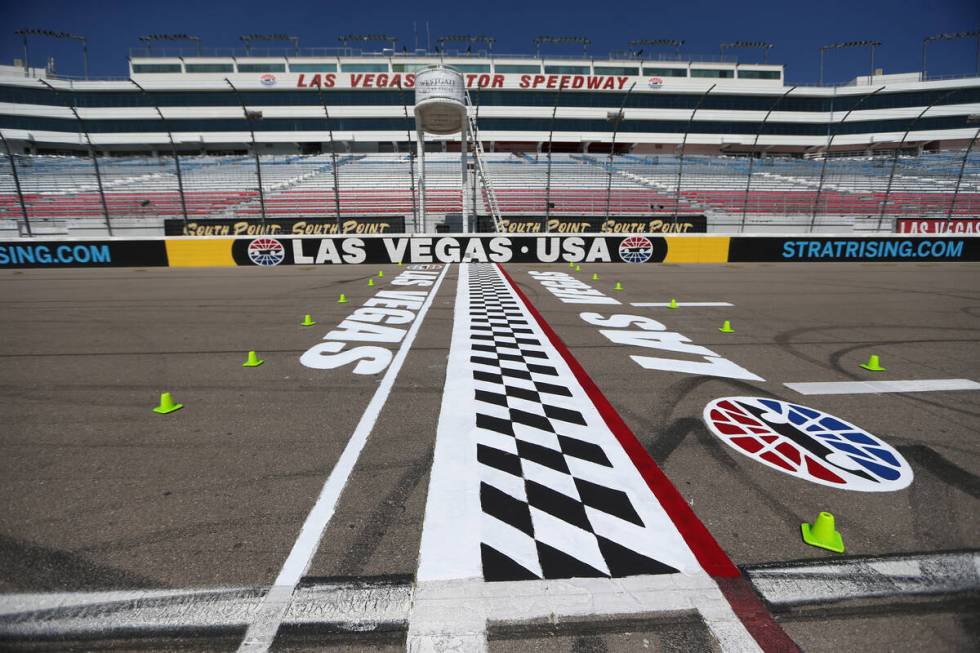Groundbreaking autonomous race taking place at Las Vegas Motor Speedway

CES has been showcasing autonomous vehicle technology for several years but this year one group is looking to take driverless technology to the next level.
Energy Systems Network is hosting the Indy Autonomous challenge Friday at the Las Vegas Motor Speedway. Instead of the usual, “gentlemen, start your engines,” phrase spoken before many races, this one replaces engines, with “software,” tied to the algorithms the autonomous race cars are operated on.
Five teams of students from 11 universities in seven countries will carry out what’s being billed as the first head-to-head Formula One-style race featuring fully autonomous race cars going upwards of 160 mph. The first-place winner receives $150,000 while second place gets $50,000.
“Autonomous racing is expanding the boundaries of tech and we’re thrilled to welcome the Indy Autonomous Challenge to CES,” said Gary Shapiro, president and CEO of CTA in a statement. “With automotive and transportation tech tracking for record growth at CES 2022, the Autonomous Challenge at CES will further show our attendees all that is possible with self-driving vehicle technology.”
The race builds off an October event at Indianapolis Motor Speedway that featured nine teams of students from 19 universities looking to get the fastest single lap, two lap speed average and overall fastest speed.
The primary goal of the Indy challenge is to advance technology that can speed up the commercialization of fully autonomous vehicles and deployments of advanced driver-assistance systems.
It’s hoped that the enhancements created by the collegiate teams will increase safety and performance in motorsports, as well as other modes of transportation.
Paul Mitchell, president and CEO of Energy Systems Network, said Tuesday there is no desire to one day replace human race car drivers with the technology, but rather to increase safety measures, which could lead to even faster speeds than what are seen currently.
“We think race car drivers make a ton of sense and it’s a real exciting part of that industry,” Mitchell said during a press conference at Mandalay Bay. “What we’re actually trying to do is provide technologies that could allow those race car drivers to go faster and do so safely… It’s been about 20 years since we’ve seen speeds kind of stuck around 230, maybe topping out at 240 mph. What is it going to take to get race cars going 270 mph, or actually 300 mph?”
Mitchell said putting advanced driver-assistance systems on race cars will be one of the key factors to getting there in the future.
Luminar, a top LiDAR hardware and software technology producer, will serve as a premier sponsor of the event. The Dallara AV-21 is the most advanced race car ever built and features three Luminar Hydra LiDAR sensors to provide 360-degree long-range sensing, which enables safe autonomy at high speeds.
The competition highlights what students can do in science, technology, engineering and math fields and looks to inspire the next generation of innovators.
“Similar to the DARPA Grand Challenge in 2004 and those that followed, the Indy Autonomous Challenge plays an important role in exposing more students to autonomous technology, which in turn helps shape the next generation of engineers who will go on to build mission-driven technology companies like Luminar,” said Austin Russell, founder and CEO of Luminar.
Even though Mitchell said the company isn’t gunning to remove drivers from race cars, he didn’t rule out having a human vs. machine exhibition one day.
“I think it’s inevitable,” Mitchell said. “We’re not there yet. I think as these vehicles continue to progress and we understand they can operate safely, a human race car driver will inevitably want to be involved in that.”
Contact Mick Akers at makers@reviewjournal.com or 702-387-2920. Follow @mickakers on Twitter.